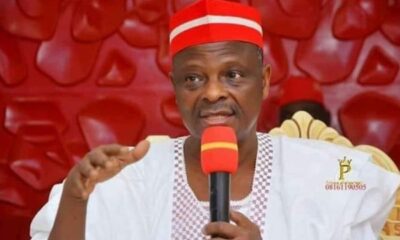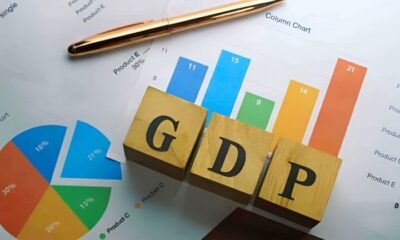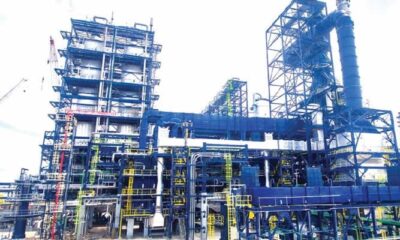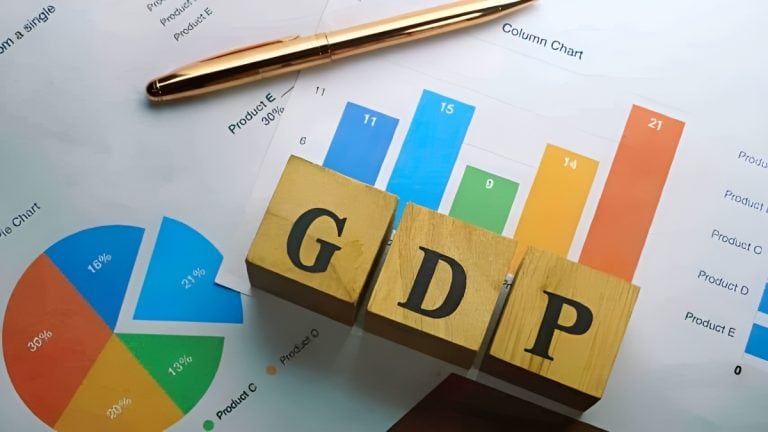The National Bureau of Statistics (NBS) has reported a 4.23 per cent growth in Nigeria’s Gross Domestic Product (GDP) for the second quarter of 2025, indicating an improvement from the 3.48 per cent recorded in the same period last year. However, labour unions and stakeholders in the real sector have questioned the relevance of the figures, citing a disconnect between economic data and the realities faced by Nigerians.
The NBS attributed the improvement to the recent rebasing of the GDP, using 2019 as the new base year. The agency stated that previous quarterly estimates were adjusted to reflect the rebased series, offering more accurate sectoral comparisons.
“This procedure provided a new quarterly GDP series, which is compared to the 2025 second quarter estimates,” the NBS noted. “GDP grew by 4.23 per cent (year-on-year) in real terms in the second quarter of 2025.”
Labour Rejects GDP Figures, Cites Harsh Economic Conditions
Despite the reported growth, senior officials of the Nigeria Labour Congress (NLC) expressed skepticism about the accuracy and practical impact of the data. One official, who spoke on condition of anonymity, argued that the figures fail to reflect worsening conditions for workers and average citizens.
“When we talk about GDP growth, the key question is how it impacts the lives of the people. If it does not translate into better living conditions, then it is meaningless,” the official said. “This is what we call growth without development.”
He also questioned the basis of the GDP calculations, claiming they were being manipulated ahead of elections. “Statistics that don’t reflect on-ground realities are useless to the citizenry,” he added.
Attempts to get a response from the President of the Trade Union Congress (TUC), Festus Osifo, were unsuccessful.
Another senior NLC official criticized the reported unemployment rate of about four per cent, calling it “a falsehood” driven by neoliberal policies. He insisted that unemployment remains far higher than official figures suggest and warned that such discrepancies undermine economic planning.
“Do you see the 4.23 per cent GDP growth in your life? I don’t,” the official stated. “Conditions are worsening, workers are suffering, yet officials claim the economy is growing.”
Oil Sector Fuels GDP Rebound
According to the NBS report, the nominal value of Nigeria’s economy reached ₦100.73 trillion in Q2 2025, up from ₦84.48 trillion in the same period of 2024, marking a 19.23 per cent year-on-year increase. The surge was driven largely by the oil sector, which saw average daily crude oil production rise to 1.68 million barrels per day, compared to 1.41 million barrels per day in Q2 2024.
The oil sector recorded real growth of 20.46 per cent, a significant turnaround from 1.87 per cent in the previous quarter. Its contribution to overall GDP rose to 4.05 per cent, up from 3.51 per cent a year earlier. The mining and quarrying sector, which includes crude petroleum, coal, and other minerals, also posted real growth of 20.86 per cent. Coal mining expanded by 32.59 per cent, while quarrying rose by 50.41 per cent.
Non-Oil Sector Remains Economic Anchor
Despite strong oil performance, the non-oil sector remained dominant, contributing 95.95 per cent to GDP. It grew by 3.64 per cent in Q2 2025, compared with 3.26 per cent in Q2 2024 and 3.19 per cent in Q1 2025.
Growth in the non-oil sector was driven by agriculture, telecommunications, real estate, trade, construction, finance, and energy services. Agriculture grew by 2.82 per cent, rebounding from just 0.07 per cent in the previous quarter, though its share of GDP declined to 26.17 per cent from 26.53 per cent.
Industrial growth more than doubled to 7.45 per cent, while the manufacturing sector slowed to 1.60 per cent, with its contribution dropping to 7.81 per cent.
Mixed Sectoral Performance
The construction sector expanded by 5.27 per cent year-on-year but contracted sharply on a quarterly basis. The services sector grew by 3.94 per cent, slightly higher than the 3.83 per cent recorded a year earlier.
Trade accounted for 18.28 per cent of GDP but saw a slowdown in growth to 1.29 per cent from 1.82 per cent the previous year. Information and communication services grew by 6.61 per cent, contributing 11.18 per cent to GDP, while finance and insurance surged by 16.13 per cent.
Transport and storage grew significantly by 22.09 per cent, while electricity, gas, steam, and air conditioning rose by 11.47 per cent. Water supply, waste management, and remediation services expanded by 10.60 per cent, reflecting broad growth in the utilities subsector.
Finance Minister Stresses Need for Higher Growth
Minister of Finance and Coordinating Minister of the Economy, Wale Edun, has previously stressed the need for higher growth to lift the poorest Nigerians out of poverty. In July, Edun reiterated that Nigeria must sustain at least seven per cent annual growth to make a tangible impact on the lives of vulnerable citizens.
“To really help the poorest and most vulnerable, we need to be doing around seven per cent per annum,” Edun said during a policy meeting in May.
Private Sector Voices Concern Over Economic Disconnect
Members of the organised private sector also expressed caution despite the reported GDP growth. In separate interviews, they warned that the macroeconomic gains were not being felt by businesses or households.
Dr. Femi Egbesola, President of the Association of Small Business Owners, said: “GDP is growing, and that is a sign of hope. However, it is not translating into the daily realities of businesses and households. That is not happening at the moment.”
He described the challenges facing the manufacturing sector as alarming and warned that the collapse of small businesses could lead to worsening hardship.
“When the manufacturing sector is under pressure, it’s a red flag. If this continues, we may see growth in large corporations, but small businesses will collapse, and households will suffer,” Egbesola added.
He also pointed to declining trade activity, citing low consumer purchasing power and trade barriers as contributing factors. He urged the government to look beyond headline numbers and address the economic struggles of ordinary Nigerians.
Segun Kuti-George, National Vice President of the National Association of Small-Scale Industrialists, echoed similar sentiments. While acknowledging the GDP growth as a positive sign, he stressed that real progress must come from the real sector.
“Growth in services is good, but sustainable economic development hinges on real sector expansion. If that sector is not growing, more policy attention should be directed there,” he said.
Credit: The Punch

 BIG STORY2 days ago
BIG STORY2 days ago
 BIG STORY3 days ago
BIG STORY3 days ago
 BIG STORY4 days ago
BIG STORY4 days ago
 BIG STORY4 days ago
BIG STORY4 days ago
 BIG STORY4 days ago
BIG STORY4 days ago
 BIG STORY4 days ago
BIG STORY4 days ago
 BIG STORY5 days ago
BIG STORY5 days ago
 BIG STORY4 days ago
BIG STORY4 days ago























